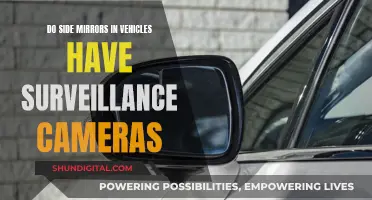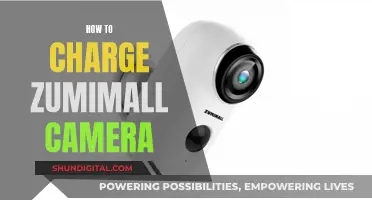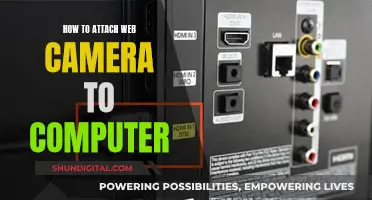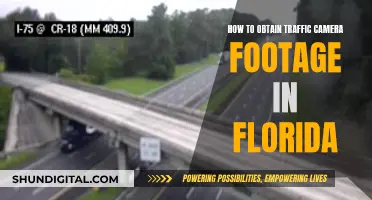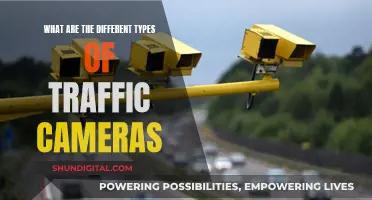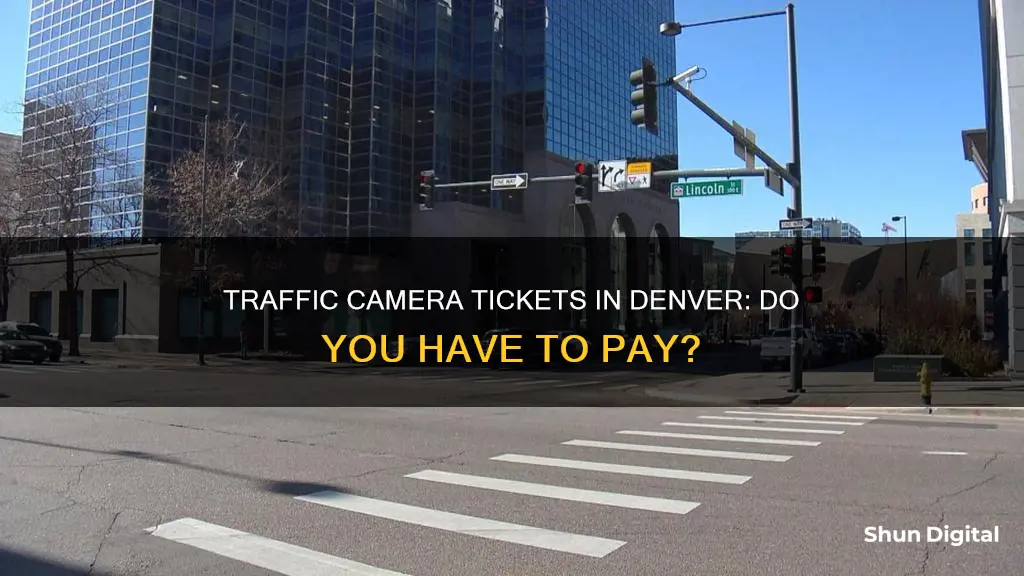
If you've been caught speeding or running a red light in Denver, you may be wondering if you have to pay the resulting traffic camera ticket. The short answer is yes, but there are some nuances to be aware of. While these tickets are legal and enforceable, they are considered a civil penalty and won't result in points on your license. The fines are typically lower than those for traditional tickets, ranging from $40 to $75 for red-light violations and $40 for speeding, with higher fines for school zones. If you don't pay the fine within the specified time frame, you may be served with a copy of the citation and required to appear in court, which can result in additional fees. It's important to note that you have the right to dispute the ticket or provide evidence that you were not the driver. While some people choose to ignore these tickets, doing so comes with the risk of penalties and collection actions.
| Characteristics | Values |
|---|---|
| Ticket validity | Tickets are valid and must be paid. |
| Ticket payment method | Tickets can be paid by mail. |
| Ticket payment time | Tickets must be paid within 30 days for Colorado residents and 60 days for those registered outside the state. |
| Ticket price | Fines range from $40 to $75. |
| Ticket price increase | If the ticket is not paid on time, the price will increase. |
| Ticket non-payment | If the ticket is not paid, it will be sent to a debt collector. |
| Ticket points | Tickets do not add points to the driver's license. |
| Ticket dispute | Tickets can be disputed in court. |
What You'll Learn
- You must pay Denver traffic camera tickets, but they don't add points to your license
- If you don't pay, you may be served in person, and the municipality can charge you for this
- Tickets are mailed to the address your vehicle is registered under with the DMV
- You can file a not pictured driver affidavit if you weren't driving
- Municipalities must clearly post signs warning of speed cameras

You must pay Denver traffic camera tickets, but they don't add points to your license
If you've been caught speeding or running a red light by a traffic camera in Denver, you may be wondering if you have to pay the resulting ticket. The short answer is yes, you do.
Colorado Traffic Camera Citations Are Now Legally Enforceable
Automated Vehicle Identification Systems (AVIS) have been used in Colorado since at least 2019, with red light cameras and photo speed vans deployed in several municipalities, including Denver. While these systems were initially able to issue citations, there was no legal requirement to pay them. However, this changed with the passing of Senate Bill 23-200, "Automated Vehicle Identification Systems", in June 2023.
If you are caught by one of these systems, you will receive a citation in the mail within 90 days of the violation. This citation will include a photo of the driver and the license plate, the amount of the fine, and information on how to pay or dispute the violation. Fines are typically between $40 and $75 for a first-class mail citation, but this can increase if you don't pay within the specified timeframe.
If you don't pay the fine, there can be further consequences. After the initial citation, you may be personally served with a copy of the ticket, which includes a date to appear in court. If you still don't pay, the matter may be sent to a debt collector, and a default judgment could be entered against you.
Importantly, these tickets do not result in points on your driver's license. They are also not reported to your insurance company. This means that while you are legally required to pay these tickets, they will not affect your driving record or insurance premiums.
If you receive a citation but you were not the person driving, you can file a "not pictured driver" affidavit. This document states that you were not the person driving, and you may need to provide evidence, such as a photocopy of your driver's license, to support your claim. It's important to note that you are not required to provide the contact information of the person who was driving.
In summary, while it may be tempting to ignore a traffic camera ticket from Denver, it is important to understand that these citations are now legally enforceable. Failing to pay can result in further consequences, including court appearances and debt collection. However, it's worth remembering that these tickets do not affect your license or insurance, and if you have a valid reason to dispute the citation, there are ways to do so.
Olympus Cameras: High-Res Mode Options Explored
You may want to see also

If you don't pay, you may be served in person, and the municipality can charge you for this
If you don't pay your traffic camera ticket in Denver, you may be served in person and the municipality can charge you for this. This means a process server will track you down and physically hand you the documents. In Denver, this will cost you a minimum of $29.
The process then becomes similar to a civil case, and you will be required to respond to the citation and appear in court. If you do not respond to the citation, a default judgment could be entered against you, and the citation may be sent to a debt collector.
In the past, drivers could legally avoid paying red light camera citations in Colorado. If you weren't served notice of the violation through a person or certified mail within 90 days, the ticket would be absolved. However, this is no longer the case. Now, when a citation is mailed first-class, it's considered served, even if it was sent to an old address or you didn't receive it.
Colorado residents have 30 days from when the ticket is mailed to respond, while those registered outside the state have 60 days. If you don't respond on time, fines will increase.
Charging the Eufy Solar Camera: A Quick Guide
You may want to see also

Tickets are mailed to the address your vehicle is registered under with the DMV
Traffic camera tickets in Denver are mailed to the address your vehicle is registered to with the DMV. This is true even if the address is old or you no longer live there. The tickets are considered served once they are sent out, and it is your responsibility to ensure that your information is up to date.
If you receive a traffic camera ticket in the mail, you have a few options. First, you can simply pay the fine. These tickets typically cost between $40 and $75, and they do not result in any points on your license. Alternatively, you may choose to fight the ticket. You can dispute the ticket by claiming that you were not the person driving the vehicle or that the photo is unclear. If you decide to fight the ticket, be aware that you may need to go to court and that there is a risk of additional fees and penalties if you are found guilty. Another option is to ignore the ticket, but this could result in a penalty charge, a default judgment from a court, or the debt being sent to a collection agency.
It is important to note that traffic camera tickets in Denver are considered legally valid and enforceable. While there has been some controversy and debate surrounding their use, failing to pay these tickets can result in consequences. Additionally, new laws have been passed that have made it harder to avoid payment.
To avoid any potential issues, it is generally recommended to pay the fine, especially if you were guilty of the violation. However, if you feel strongly about the matter, you can always contact your local government officials to express your concerns and discontent.
Hive Camera: Battery Operated or Not?
You may want to see also

You can file a not pictured driver affidavit if you weren't driving
If you receive a traffic ticket in Denver, Colorado, you may be wondering if you have to pay it, especially if it was issued by a traffic camera. While it may be tempting to ignore the ticket, failing to respond within the given timeframe can result in additional fines and complications.
Previously, drivers in Colorado could legally avoid paying red light camera citations if they were not served notice of the violation through a person or certified mail within 90 days. However, as of June 2023, a new law states that when a citation is sent to the registered owner of a vehicle via first-class mail, it is considered served, even if it was sent to an old address or the owner claims they did not receive it. This change in the law means that ignoring a mailed ticket is no longer a viable option, as it will result in additional penalties.
So, what can you do if you receive a traffic camera ticket in Denver and you weren't the one driving? One option is to file a "not pictured driver" affidavit. This is a document stating that you were not the person driving the vehicle, even though it is registered under your name. It's important to note that these affidavits will be reviewed, and you must provide a clear photocopy of your driver's license for verification. Lying on the affidavit is considered a criminal offense and can result in more serious consequences than the original traffic ticket. Therefore, it is essential to be truthful and only file the affidavit if you were indeed not the driver.
To file a "not pictured driver" affidavit, you must submit it by the respond-by date listed on the citation. If it is determined that you were not the driver, the case will be dismissed. However, if you falsely claim that you weren't driving, you may face a criminal charge for reporting false information. It's worth mentioning that you are not responsible for identifying the actual driver when filing this type of affidavit. The authorities will need to investigate and determine who was driving the vehicle at the time of the violation.
In addition to filing a "not pictured driver" affidavit, you may have other options to respond to a traffic camera ticket, such as requesting an administrative review or pleading not guilty by providing a valid reason for the violation. However, it's important to carefully consider the risks and rewards of each option before taking action. While it may be frustrating to receive a traffic ticket, especially from a camera, it's essential to respond appropriately and provide accurate information to avoid further complications and penalties.
The Evolution of Portable Cameras: A Historical Perspective
You may want to see also

Municipalities must clearly post signs warning of speed cameras
In Denver, Automated Vehicle Identification Systems (AVIS) are used to enforce traffic laws. These systems include red light cameras and photo speed vans, which are used to detect traffic violations such as speeding and running red lights. While these systems are effective in monitoring and enforcing traffic laws, it is important for municipalities to clearly post signs warning drivers of the presence of speed cameras.
The presence of speed cameras can significantly impact the driving behaviour of motorists. When drivers are aware that their speed is being monitored, they are more likely to adhere to the posted speed limits. This can lead to improved road safety and a reduction in speeding-related accidents and violations. Warning signs can also help to reduce the number of unexpected fines and penalties for drivers who may be unaware of the presence of speed cameras.
By posting clear and visible signs, municipalities can provide advanced warning to drivers, allowing them to adjust their speed and avoid potential violations. These signs should be strategically placed before the speed cameras, giving drivers sufficient time to react and slow down if needed. The signs should be easily understandable, with clear wording or symbols that indicate the presence of speed monitoring ahead.
In addition to improving road safety, clear warning signs can also help to reduce the administrative burden on municipalities. When drivers are aware of speed cameras, there may be a decrease in the number of citations and penalties issued. This can lead to a more efficient use of resources, as municipalities can focus on other important tasks instead of processing a high volume of citations.
Furthermore, posting warning signs can help to promote transparency and trust between municipalities and residents. Motorists are more likely to accept the presence of speed cameras when they are aware of their location and purpose. This can lead to increased cooperation and a sense of fairness in the enforcement of traffic laws.
In summary, municipalities must clearly post signs warning of speed cameras to promote road safety, improve transparency, and reduce the administrative burden of processing citations. By providing advanced warning to drivers, municipalities can encourage safe driving behaviours and foster a positive relationship with residents.
Understanding PDAF Camera Mode: How It Works
You may want to see also
Frequently asked questions
Yes, Colorado law requires drivers to pay traffic camera citations.
If you don't pay the fine within the time period specified on the citation, you may be personally served with a copy of the citation which will include a date you must appear in court. If you do not respond to the personally served citation, a default judgment could be entered against you and the citation may be sent to a collection agency.
You have 30 days from when the ticket is mailed to respond to the citation. Those registered outside the state of Colorado have 60 days.
If you are not the driver of the vehicle, you need to inform the issuing municipality when you receive the citation in the mail. The citation will have information regarding this situation and you may be required to provide some evidence that you were not the person driving.



